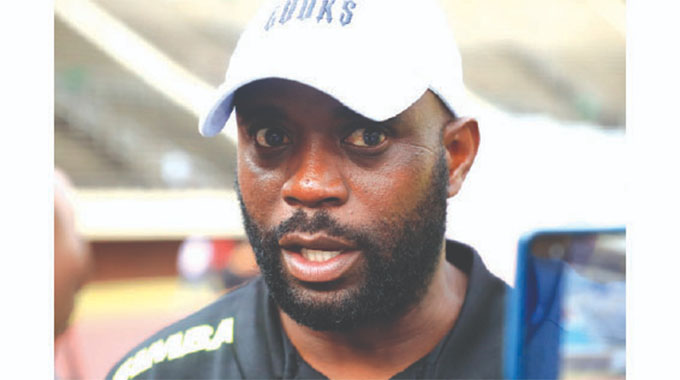‘Beast’ named Sharks captain
CAPE TOWN. – Zimbabwe-born Tendai “Beast” Mtawarira has been named as Sharks captain for their Super Rugby opener against the Kings in Port Elizabeth tomorrow.
Coach Gary Gold named his side yesterday, and Mtawarira has been given the captaincy in the absence of the injured Patrick Lambie.
There had been speculation that Marcell Coetzee, named vice-captain under Lambie before the start of the season, would be given the captaincy but Gold has opted for the 75-Test Springbok veteran instead.
Gold has also opted for Joe Pietersen at flyhalf ahead of Super Rugby novice Garth April, who has been named on the substitutes bench.
Fullback Wille le Roux, meanwhile, will make his Sharks debut.
“We’re excited to announce the appointment of Beast as stand-in Super Rugby captain in the absence of Pat Lambie. Beast has been part of our leadership group under Pat and is a respected and key member of our squad,” Gold said.
“Pat is still the team captain; however his injury lay-off has necessitated an interim change in captaincy and the appointment of Beast made sense.
“He was vice-captain in our match against Toulon and when Pat went off the field, we felt that Beast did a particularly good job that night.
“Beast has been at the Sharks for 10 years now and his heart bleeds for this team. He has grown in leaps and bounds as not only a player and one of the best loose-heads in the world, but as a leader and a revered member of the team.”
Kick-off tomorrow is at 3:05pm.
Meanwhile, Super Rugby spreads its horizons to Japan and Argentina as the new season kicks off today with an ambitious expansion to 18 teams and two more continents but also a conspicuous lack of star power.
A host of retirements after last year’s Rugby World Cup, and the lure of sevens Olympic gold have conspired to rob the ever-growing competition of some of the sport’s leading lights.
Gone are New Zealand institutions Richie McCaw and Dan Carter, along with a number of big names in Australia and South Africa.
But all eyes will be on the latest additions to the competition: Japan’s untested Sunwolves, Argentina’s promising Jaguares and a sixth South African outfit, the Port Elizabeth-based Southern Kings.
Super Rugby has blossomed from a six-team tournament played in the amateur-era 1980s to now encompass five countries straddling both hemispheres and spread over 16 time zones.
While some critics claim the latest expansion will dilute quality and impose gruelling travel schedules, Japan, the next World Cup hosts in 2019, and Argentina will get crucial exposure to arguably the world’s best club rugby competition.
The Sunwolves only announced New Zealander Mark Hammett as their coach just before Christmas, while their embryonic squad faces long trips to play in South Africa along with two home games in Singapore in their debut season.
The Jaguares are more advanced with a core of Argentine internationals coached by Raul Perez and captained by Pumas skipper Agustin Creevy, and will have seven home games scheduled for Buenos Aires.
New Zealand’s Otago Highlanders are the defending champions after their first-ever win last season under coach Jamie Joseph, and their squad is largely unchanged.
But seven-time winners the Canterbury Crusaders, captained by new All Blacks captain Kieran Read, must face life without New Zealand greats McCaw, now retired, and Carter who is playing in France.
The Wellington Hurricanes, who were dominant in the regular season only to lose to the Highlanders in last year’s final, are the bookmakers’ favourites despite losing influential midfield All Blacks duo, Ma’a Nonu and Conrad Smith.
The Waikato Chiefs, who won back-to-back titles in 2012-2013, are likely to be without the code-hopping Sonny Bill Williams, who is concentrating on sevens before the Rio Olympics, while much rests on the fitness of fly-half Aaron Cruden after his serious knee injury last year.
It will be a year of transition again for the fallen Auckland Blues, now with former All Black Tana Umaga as coach instead of John Kirwan but having to cope with the retirements of experienced forwards Tony Woodcock and Keven Mealamu.
Australia’s big hopes hinge on two-time winners ACT Brumbies and the 2014 champions NSW Waratahs, while former winners Queensland Reds have recruited popular Japanese full back Ayumu Goromaru after Wallabies trio Will Genia, Quade Cooper and James Horwill all left for Europe.
The Brumbies have been boosted by the signing of Pumas scrum-half Tomas Cubelli and are Australia’s most settled squad led by senior Wallabies Stephen Moore and David Pocock.
Wallabies coach Michael Cheika has left the Waratahs with assistant and former All Black Daryl Gibson stepping up to lead a strong squad including Australia stars Israel Folau, Kurtley Beale, Michael Hooper and Bernard Foley.
South Africa has been split into two conferences with the Western Stormers, runners-up in 2010, having former assistant Robbie Fleck in charge after Eddie Jones lasting just two weeks before he jetted off to take charge of England.
The Jaguares are likely to be fighting the Coastal Sharks and Golden Lions in the second South African-based conference for a play-off spot at the end of the season.
The 18 teams will fight it out for the eight spots in the finals series, spread over three weeks ahead of the final on August 6. – AFP.








Comments